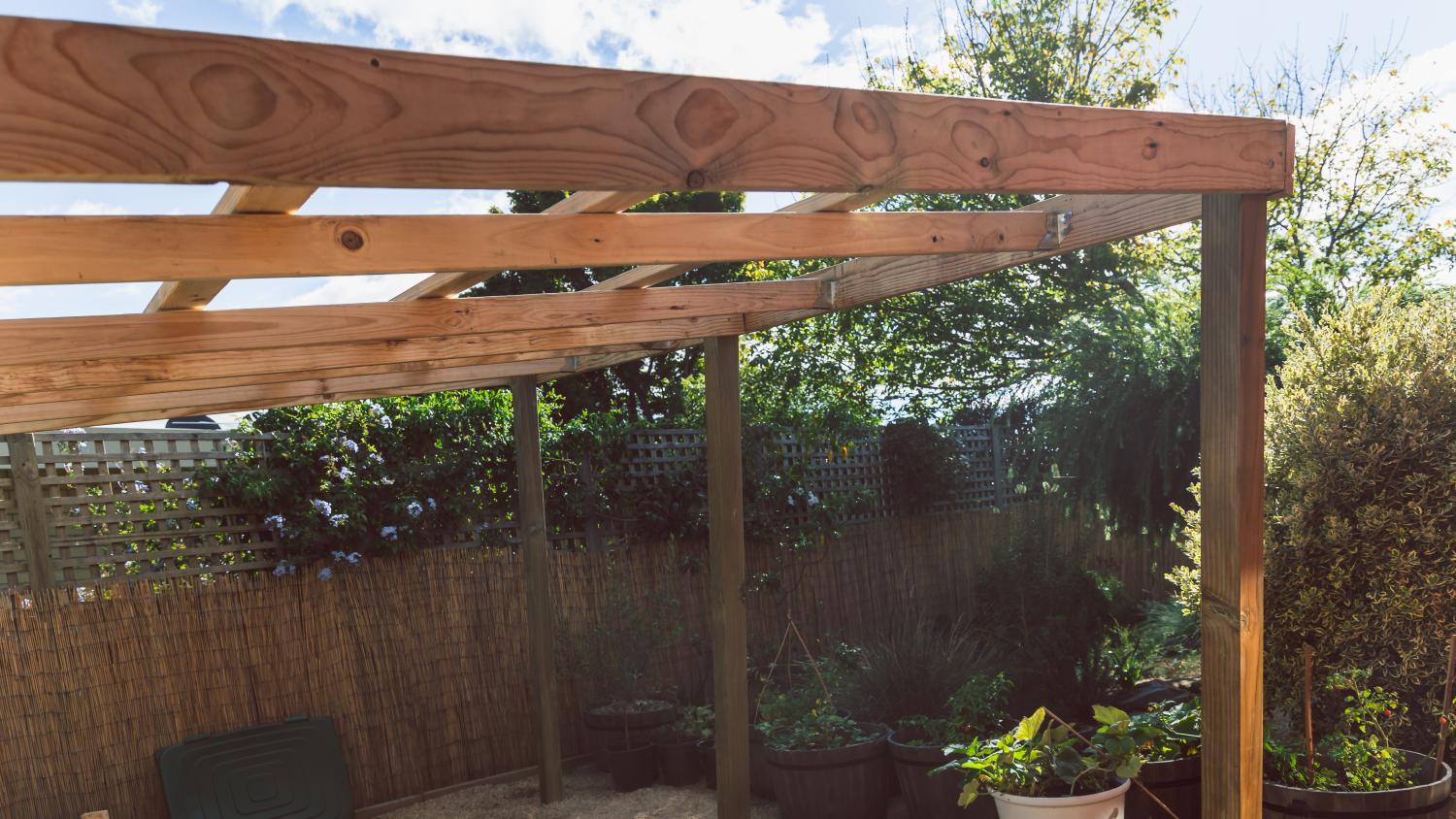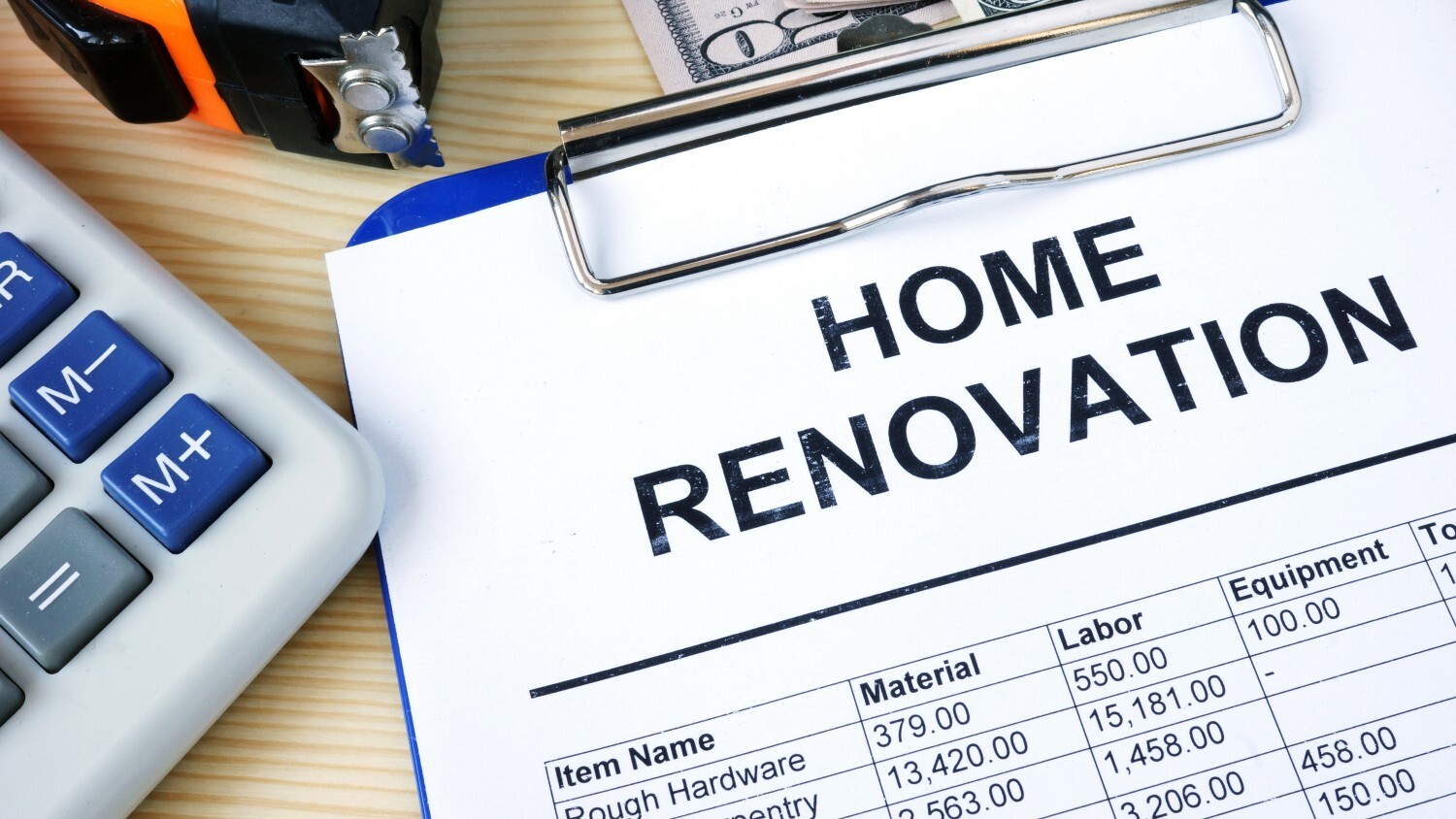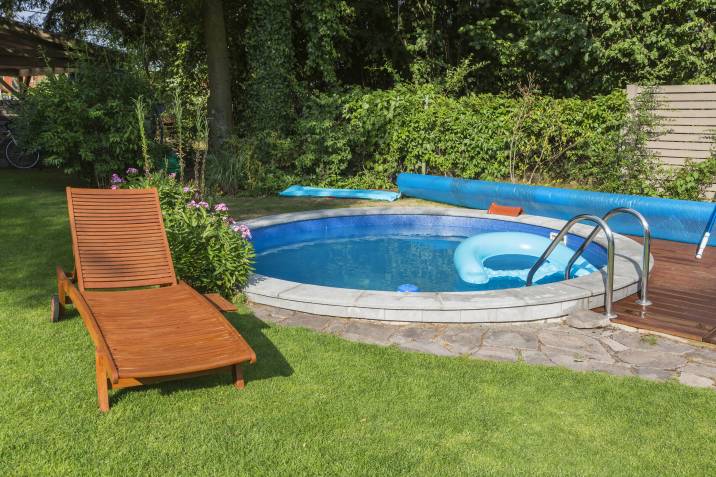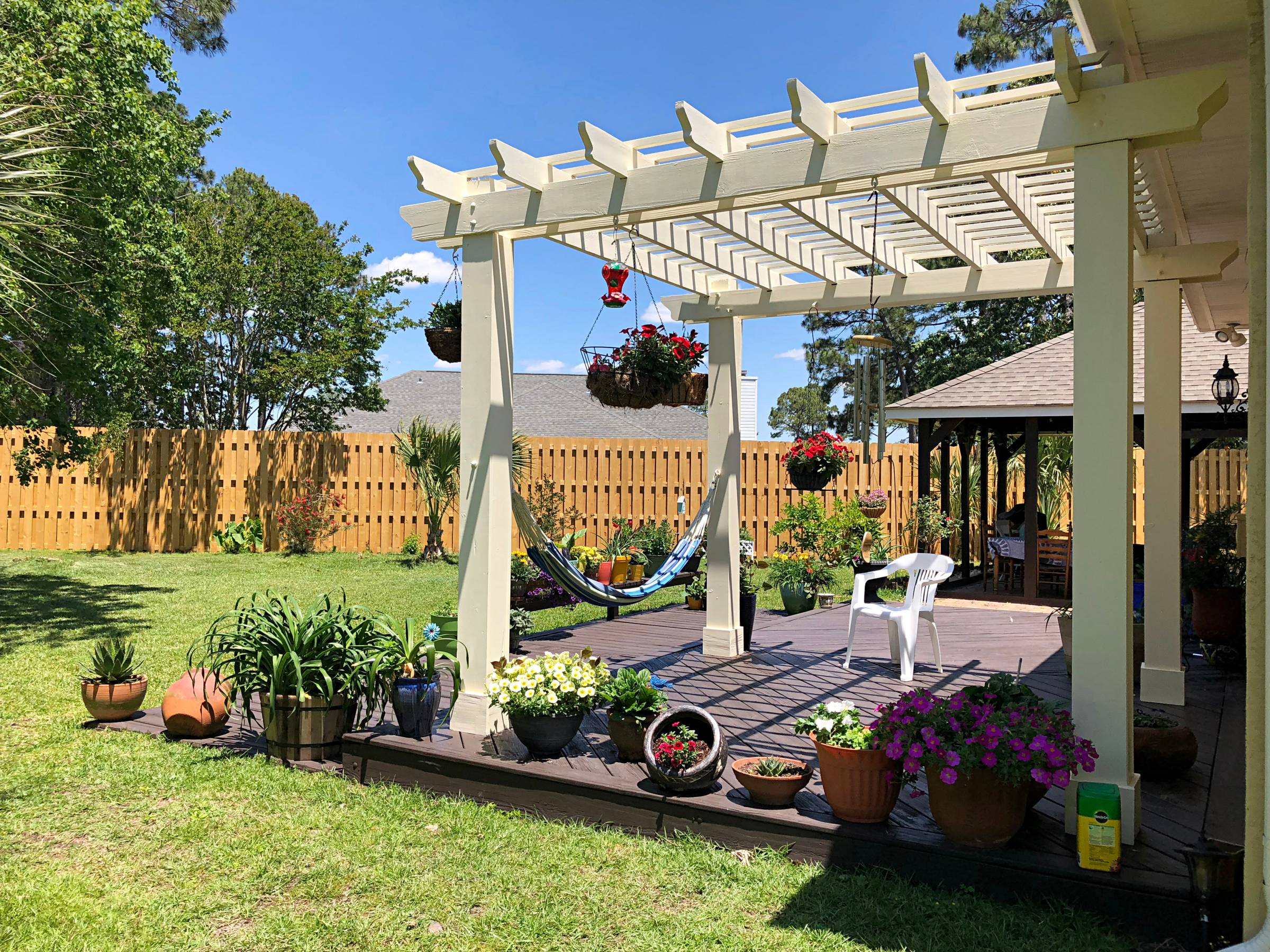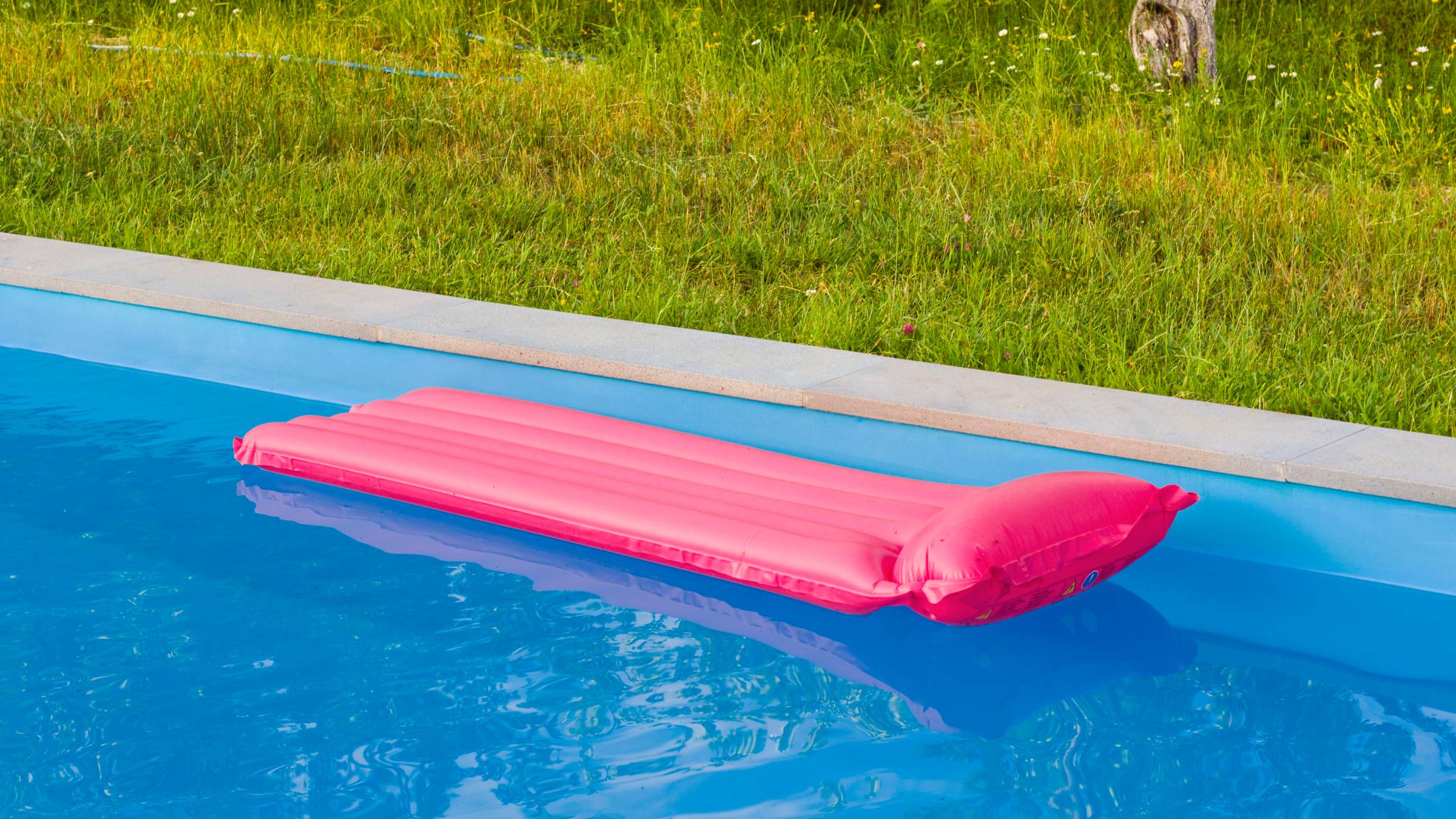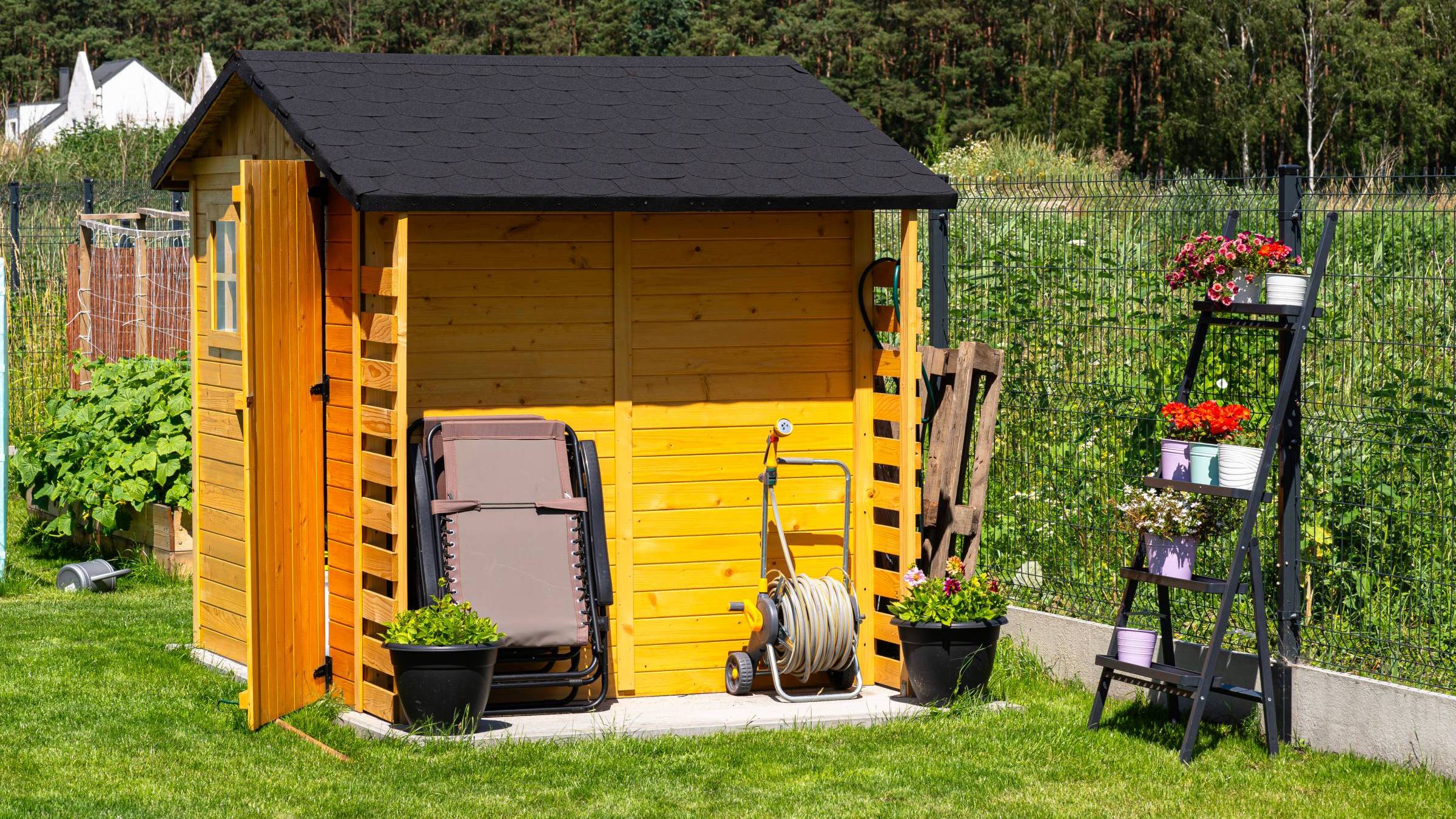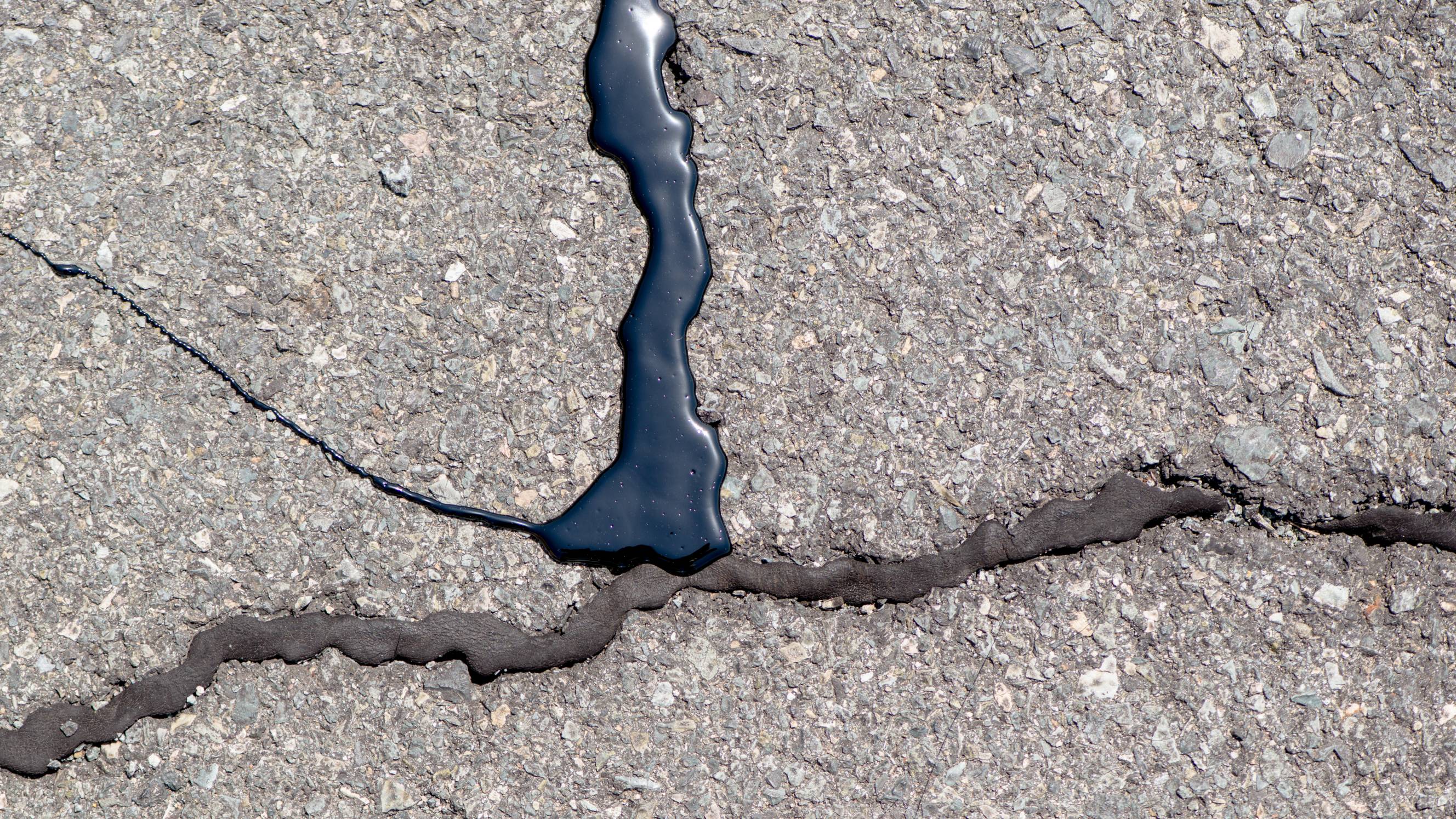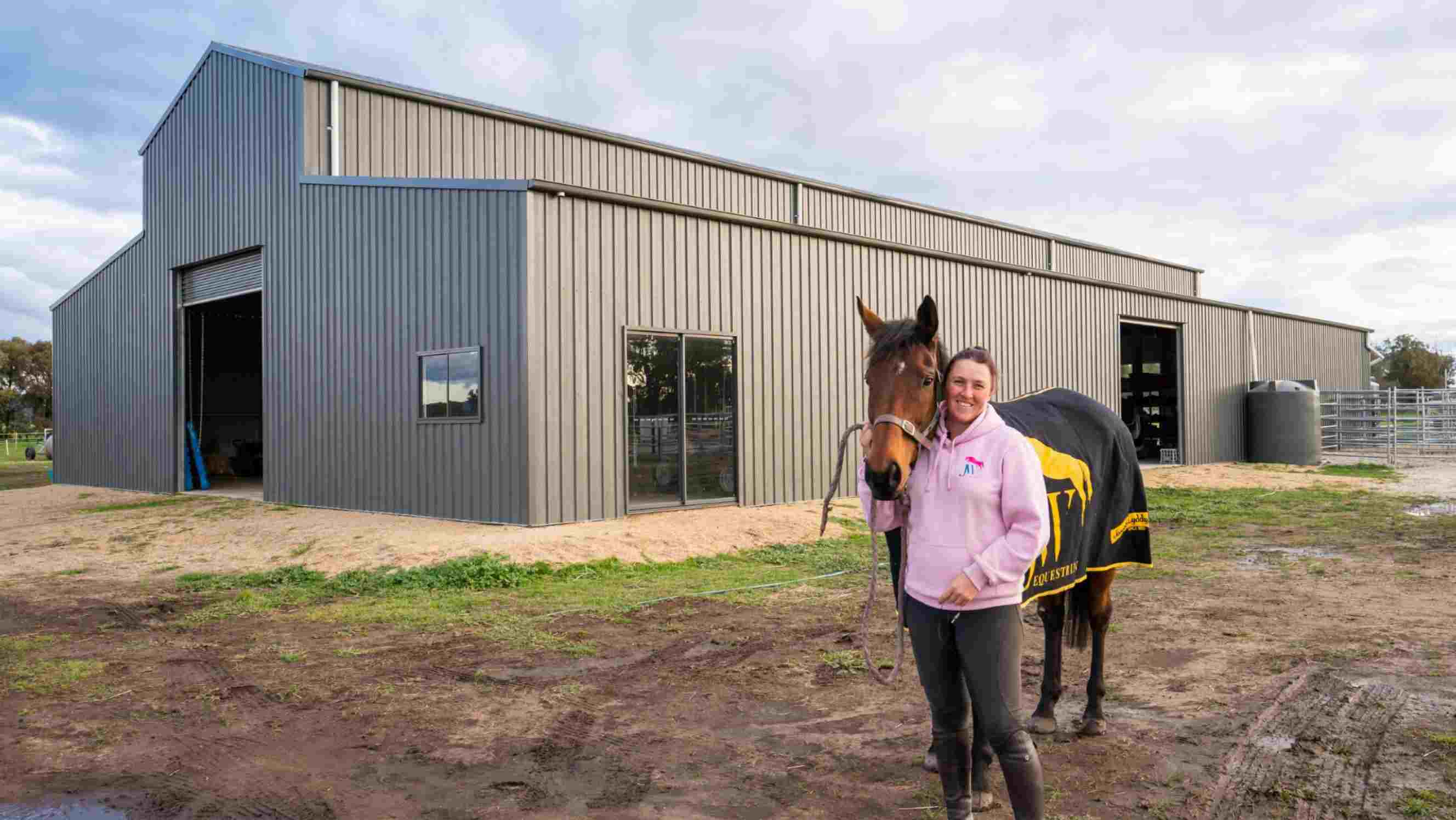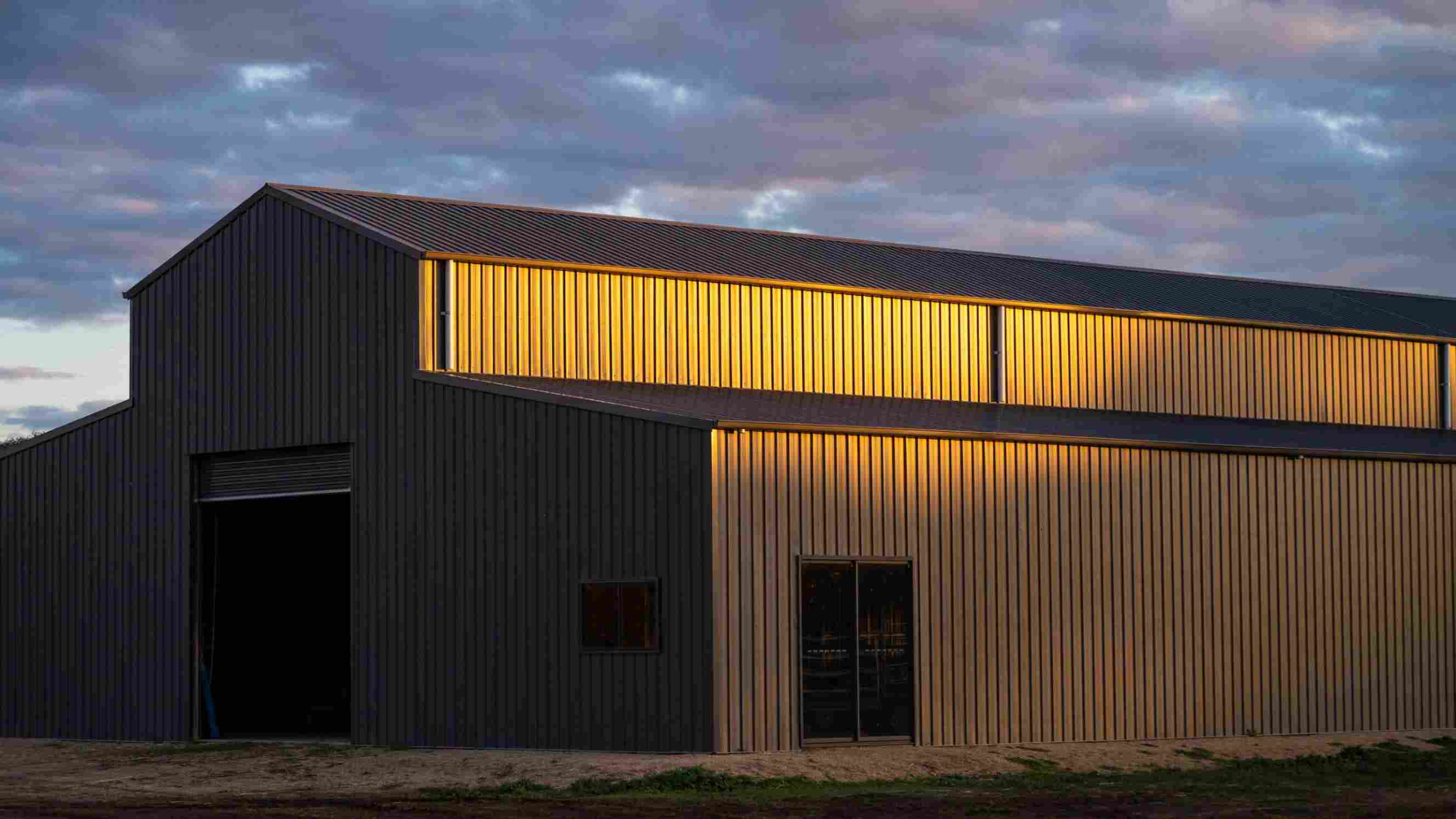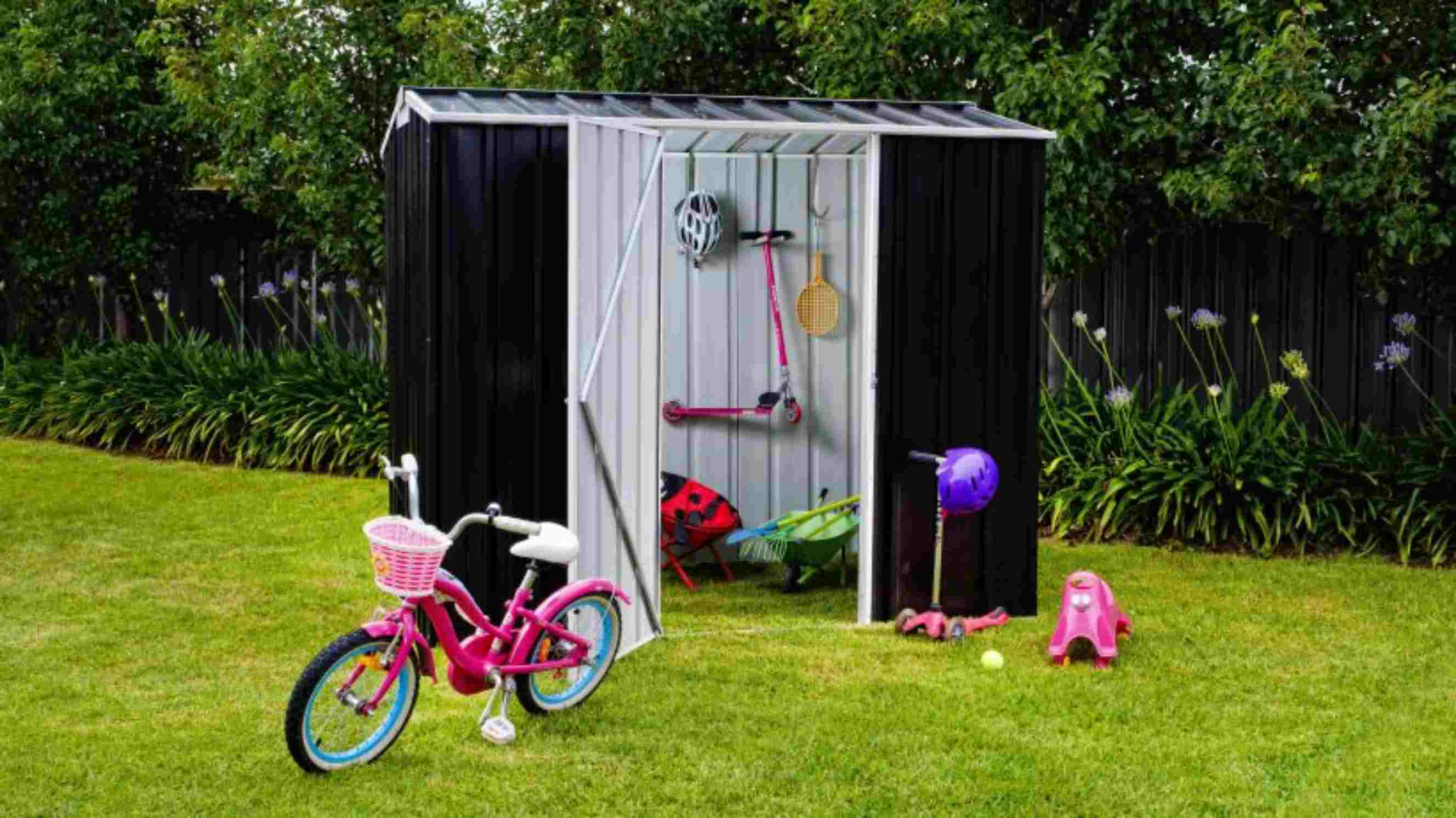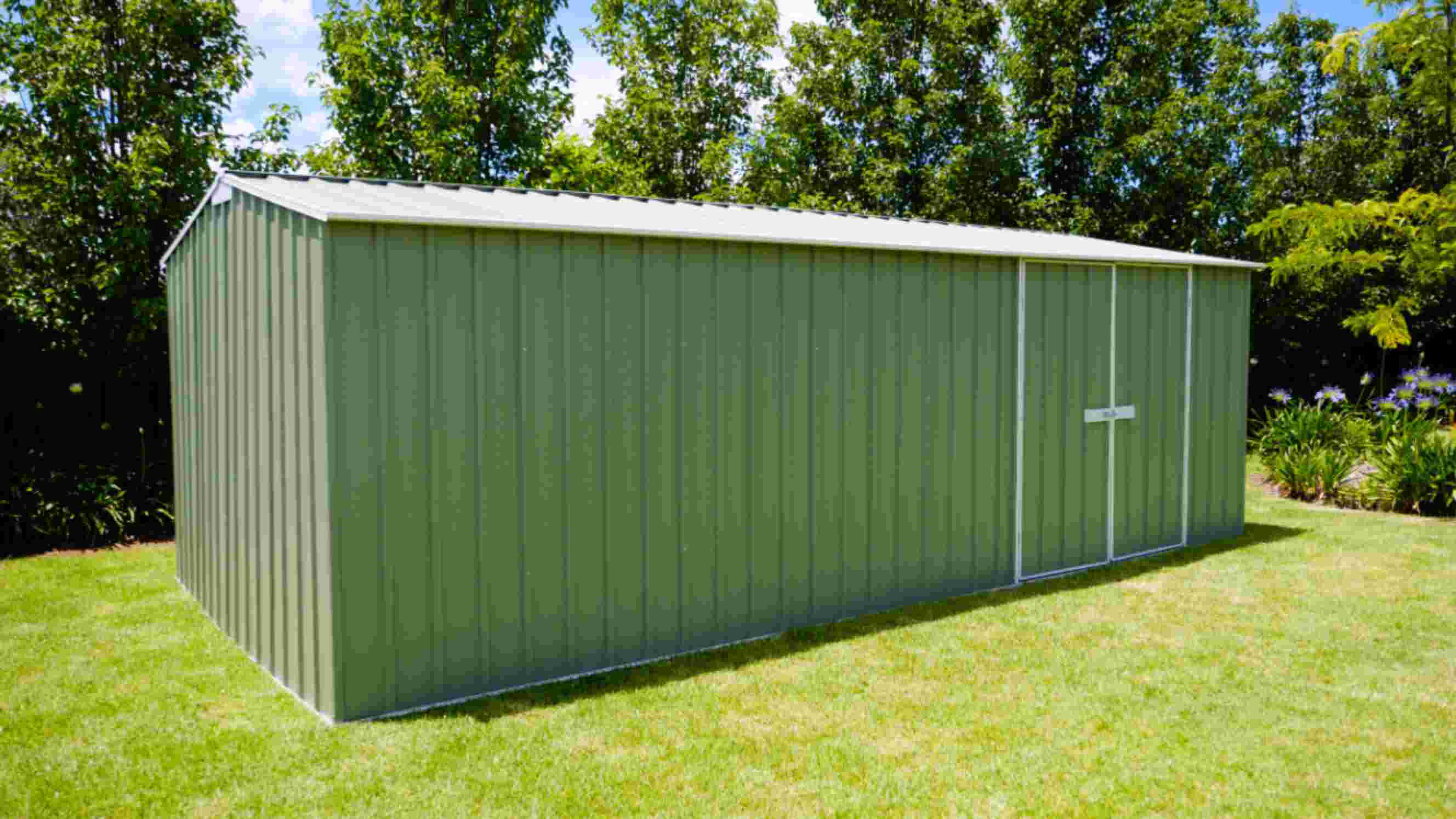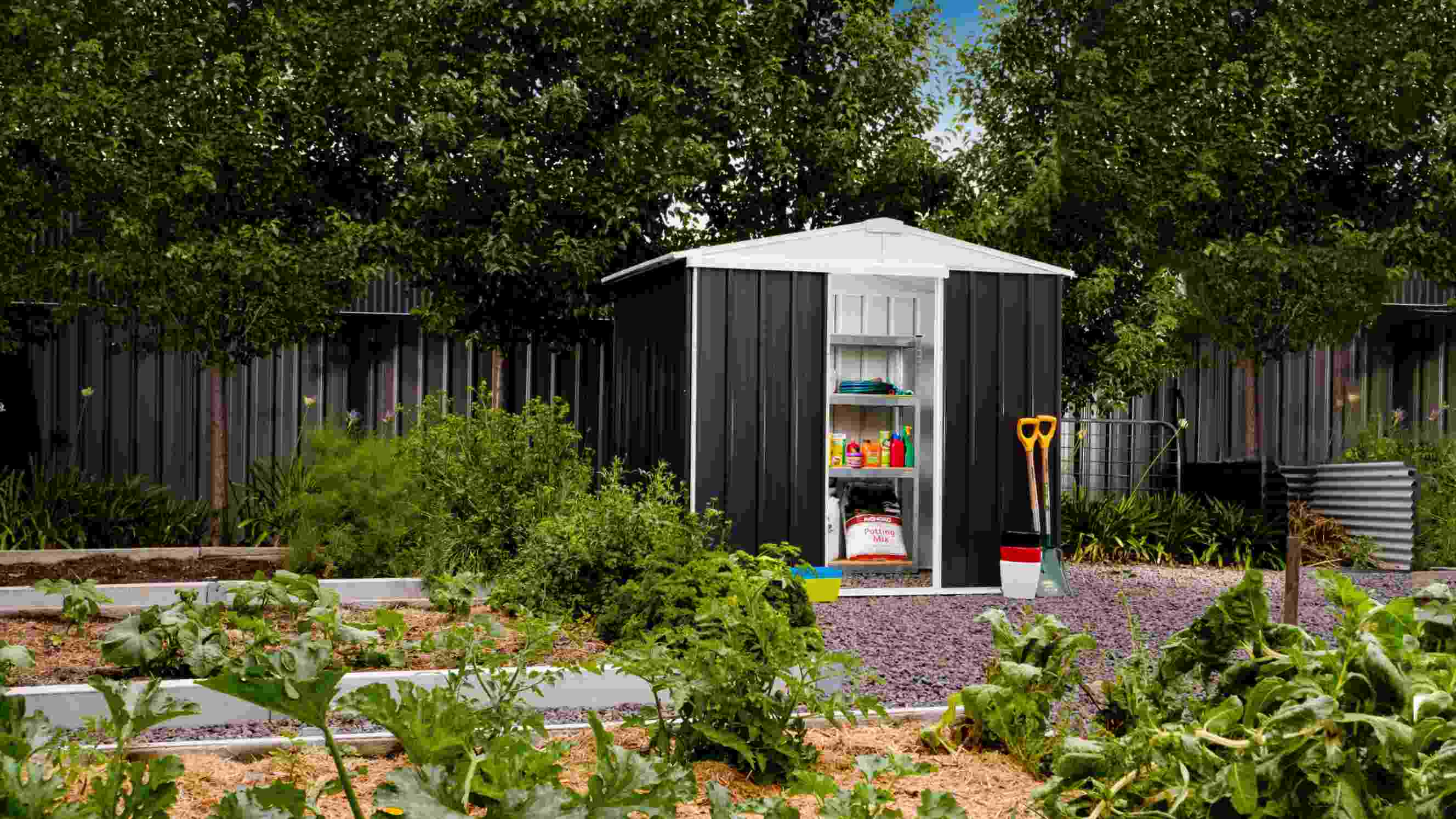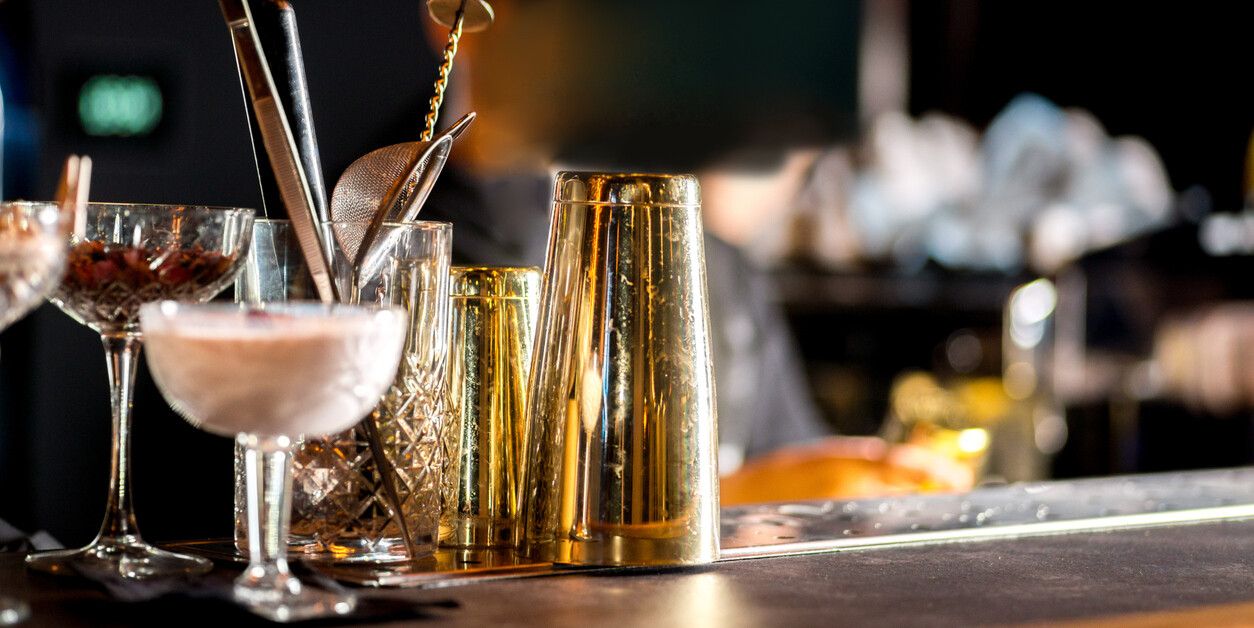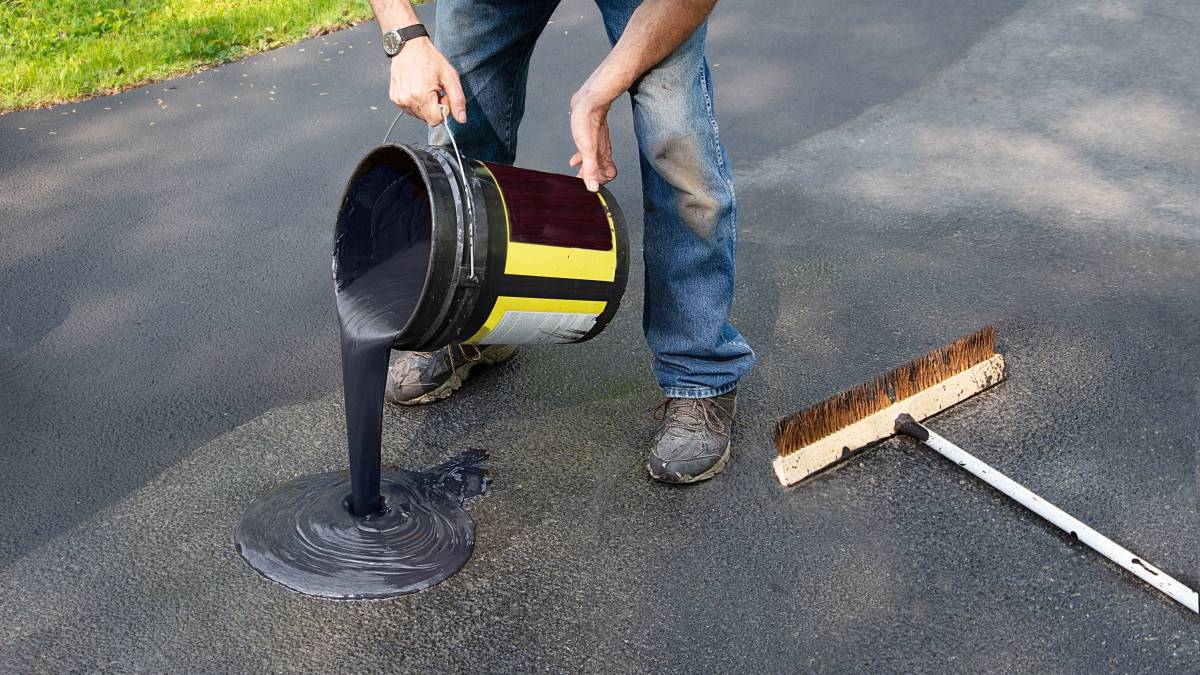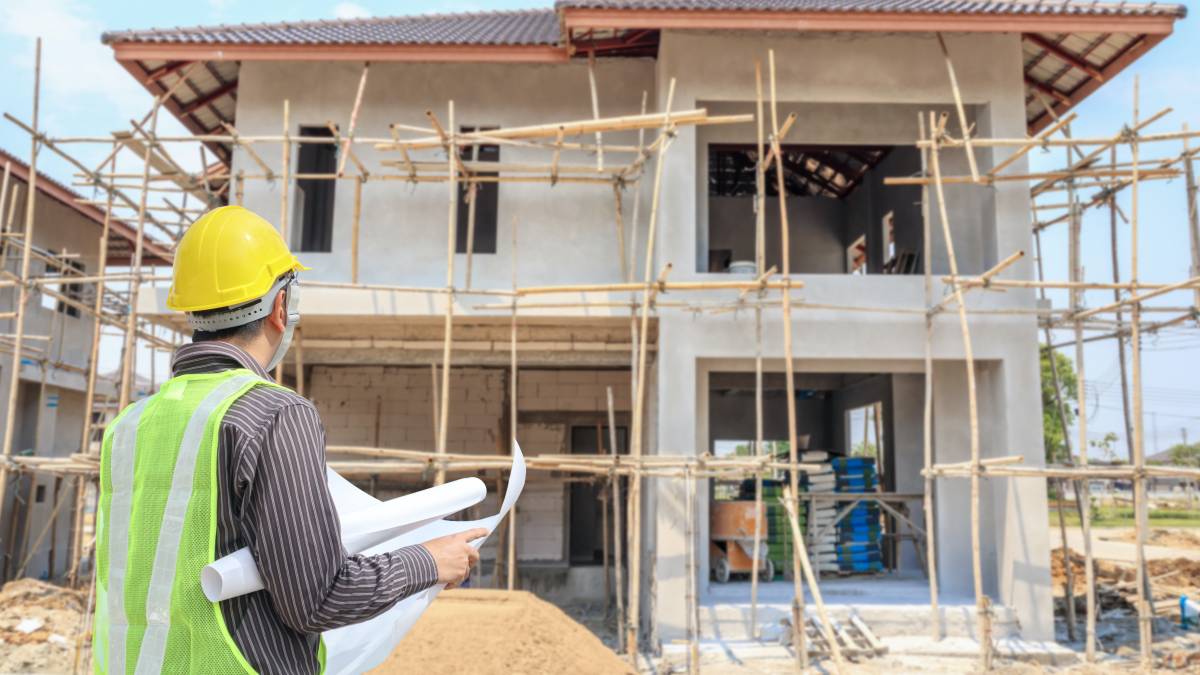- Home/
- Comparisons/
- Shed Installation/
- Timber Frame Shed vs Steel Shed
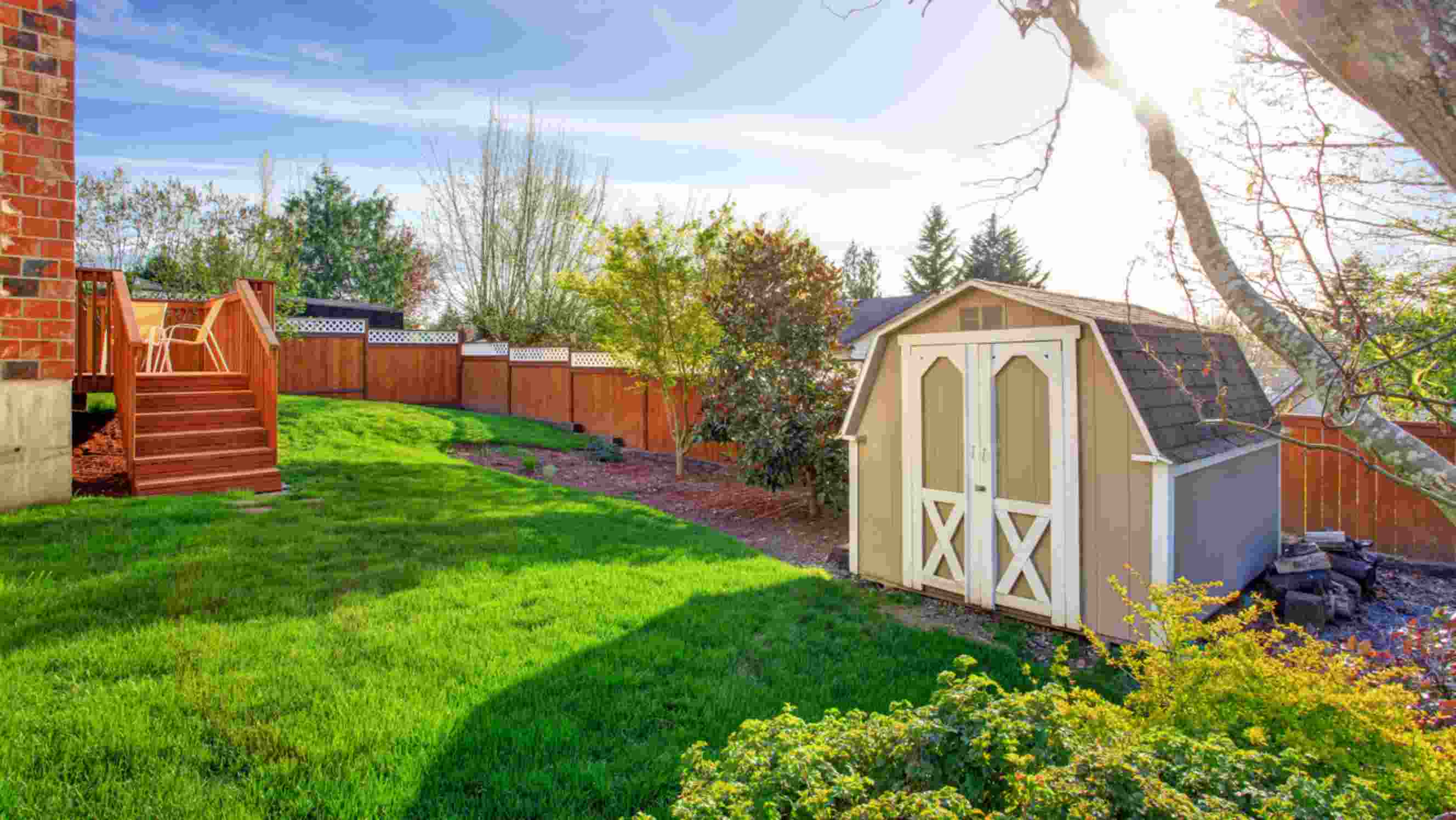
Timber frame shed vs steel shed: How do they compare?
Comparing timber and steel frame for sheds based on durability, insulation, cost, and more.
Hire a shed installerPublished on
Key Facts
A timber frame shed is a type of shed made from wood, offering natural insulation and versatility in design.
A steel shed is a type of shed often made from galvanised steel that is known for its strength, weather resistance, and ease of construction.
When building a shed, the type of frame is something you shouldn’t overlook. It’s the structure that holds everything together and the longevity of the shed depends on the material you’d use. In most cases, the choice boils down to steel frame vs timber frame.
This guide will break down the pros and cons of each frame type. We’ll make it easier for you to decide which is the best fit for your shed.
What is a timber frame shed?
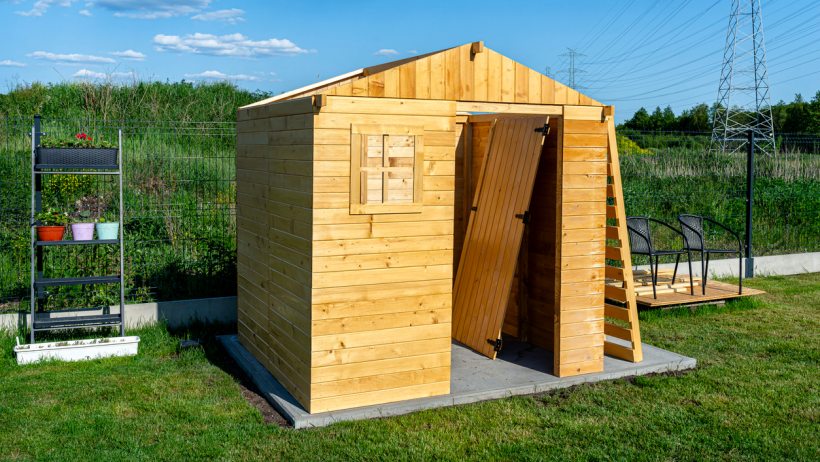 Timber frame sheds offer a rustic and natural appeal to any garden (Source: iStock)
Timber frame sheds offer a rustic and natural appeal to any garden (Source: iStock)
A timber frame shed is a structure primarily built from wood, often using timber framing and rough-sawn timber poles. These sheds offer versatility, which allows for customisations like adding shelves, windows, or lofts.
When comparing metal and wood shed materials, though, wood or timber sheds are more valued for their natural insulation, soundproofing, and resistance to rust. They’re commonly used for agricultural, workshop, and lifestyle purposes. Timber sheds can also withstand weather conditions while providing a sturdy, durable space for various needs.
What is a steel shed?
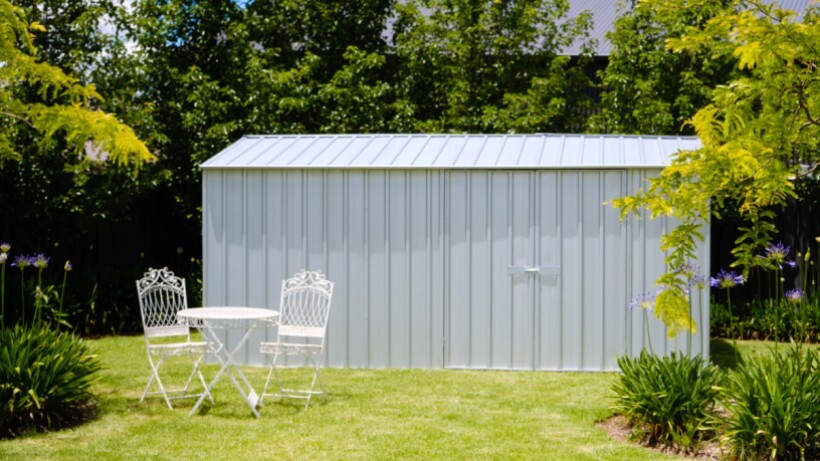 Steel sheds, like this one from Easyshed, provide durability and low-maintenance solutions for outdoor storage (Source: Easyshed)
Steel sheds, like this one from Easyshed, provide durability and low-maintenance solutions for outdoor storage (Source: Easyshed)
A steel shed is a structure made from rolled or structural steel frames, often galvanised for added corrosion resistance. Steel sheds are known for their durability, weather resistance, and pest-proof qualities. They’re popular for industrial or residential storage.
If you want to build a shed that lasts, steel is an excellent choice due to its durability. Its strength even offers the advantage of spanning larger distances without additional support. Steel is also non-combustible, which is a major advantage for those deciding to get barns over sheds in fire-prone areas. Another advantage is their lightweight property, which makes them easier to construct and maintain.
Steel frame vs timber frame for sheds: Which one should you choose?
When deciding on the frame to use for your shed, it’s important to look at several key factors to see which one suits your needs best. Both are popular types of sheds, but they offer distinct benefits depending on what you’re using them for. In this comparison, we’ll examine durability and how each material performs in different weather conditions.
In terms of durability
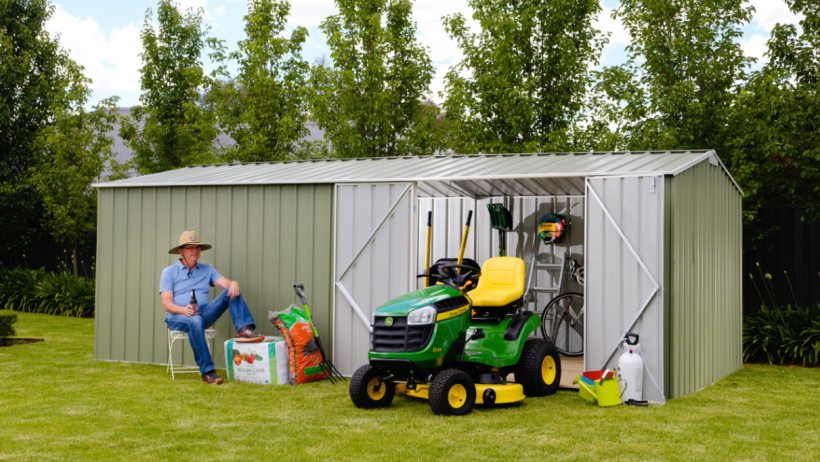 Steel sheds from Easyshed are built for durability, offering robust protection for equipment and tools against the elements (Source: Easyshed)
Steel sheds from Easyshed are built for durability, offering robust protection for equipment and tools against the elements (Source: Easyshed)
Steel frames offer excellent durability, as steel buildings are naturally resistant to rust and termites. Galvanised steel, in particular, offers protection from rust. However, it’s important to maintain it to prevent corrosion, especially when you’re building your shed in humid or coastal areas.
If you’re seeking even stronger shed frames that will last longer, steel sheds enhanced for better durability are a great option. For instance, Easyshed uses high-tensile steel with a 0.30mm Base Metal Thickness (BMT) and 0.35mm Total Coated Thickness (TCT), while their Big Sheds range features even sturdier 0.42mm BMT and 0.47mm TCT for added strength and longevity.
Timber frames are naturally durable when properly treated, as timber helps resist rot, moisture, and pests. However, untreated wood can decay in harsh weather conditions, so protection is necessary.
Timber frames also hold up well against physical impacts. This makes them suitable for areas where building a sturdy shed foundation is important, especially when heavy equipment is involved.
In terms of insulation
Timber naturally provides better insulation to sheds, which makes it effective at maintaining a stable temperature inside. This is ideal for workshops or other spaces where warmth is needed. Also, timber absorbs sound, so it’s quieter inside, especially during bad weather or when working with noisy tools.
Steel is a poor insulator, so steel-framed sheds often get very hot in the summer and cold in the winter. You’ll need additional insulation to maintain a comfortable temperature. Steel also amplifies noise, making it much louder during rain or hailstorms compared to a timber-framed shed.
In terms of resistance to rust and termites
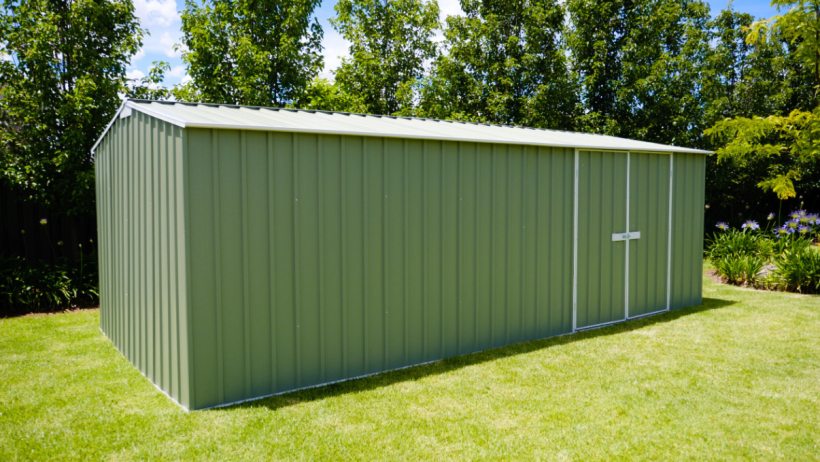 Steel sheds offer superior resistance to rust and termites, ensuring longevity and minimal maintenance for your backyard storage solution (Source: Easyshed)
Steel sheds offer superior resistance to rust and termites, ensuring longevity and minimal maintenance for your backyard storage solution (Source: Easyshed)
Timber frames can be vulnerable to termites, which can cause severe damage if untreated. You’ll need to apply termite-resistant treatments and perform regular inspections to maintain the structure. But in terms of rust resistance, timber frames are mostly better than steel, making them ideal for areas with high moisture.
If you prefer steel frames, you won’t need to worry about pest damage. However, steel is prone to rust, particularly in coastal or humid environments.
One way to prevent this is to opt for galvanised steel, but weak spots like screws or scratches can still rust eventually, so they’ll still require extra care.
Another solution is to look for trusted shed manufacturers like Easyshed, which uses high-tensile steel that meets industry standards. This high-tensile rating ensures that their steel sheds won’t rust under normal conditions.
In terms of the aesthetics
Timber frames offer a natural, rustic charm that complements modern garden ideas centred around warmth and character. You can either paint or stain timber, so homeowners can easily match their timber garden sheds to their home or outdoor furniture assembly. These sheds also lend a cosy, inviting feel to a space.
Steel frames bring a sleek, industrial vibe. While practical, steel garden sheds are more limited in customisation and are often chosen for their durability rather than looks. Though you can paint a steel shed, the overall design remains minimalistic, which makes it harder to incorporate personal touches like windows or decorative accents.
In terms of maintenance
Timber frames need regular maintenance, which includes inspections for pests like termites and applying weatherproof coatings to protect against rot and warping. Repainting or staining is often necessary to maintain the natural wood aesthetic. Untreated timber may suffer from shrinkage or warping if exposed to moisture over time.
Steel frames require less maintenance. They don’t require painting or staining as frequently and are immune to termites and other pests, which cuts down the need for pest control. However, rust prevention is important, especially at vulnerable points like screws and scratches in the protective coating.
Cleaning a steel shed is also pretty straightforward. According to shed experts from Easyshed, a standard wash down using soap and water once a year would be enough to keep a metal shed looking pristine for years on end.
In terms of cost
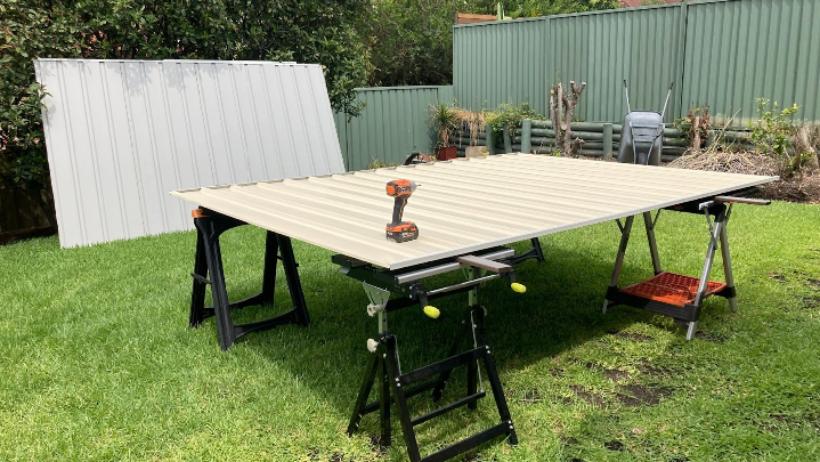 Cost considerations vary based on materials and size. Steel sheds, like those from EasyShed, offer durability and affordability for long-term use (Source: Easyshed)
Cost considerations vary based on materials and size. Steel sheds, like those from EasyShed, offer durability and affordability for long-term use (Source: Easyshed)
Timber frames typically have lower initial material costs, especially when using common woods like pine. They range from $1,250 to $1,650 per square metre. They’re easier to construct, so if you’re planning to install a garden shed or any other type, you’d spend less on specialised labour. However, timber sheds require ongoing maintenance, such as termite treatments and weatherproofing, which can add to the overall expense over time.
Steel frames, on the other hand, have higher material and construction costs due to the price of steel and the need for expertise during installation. The usual cost of a steel shed in Australia ranges from $256 to $2,849. However, they are much more cost-effective in the long run due to minimal maintenance needs.
Find expert timber or steel shed installers on Airtasker
When choosing between a steel and a timber frame shed, it really comes down to your priorities. Do you want something that’s low-maintenance and durable, or are you drawn to a more natural, customisable look? Whichever you choose, though, make sure that it’s installed properly.
If you're ready to get started, why not leave the heavy lifting to the pros? On Airtasker, you can find experienced workers to handle your shed installation from start to finish. Post a task today and connect with skilled professionals who can bring your shed vision to life!
Timber Frame Shed vs Steel Shed
| Timber Frame Shed |
Steel Frame Shed |
|
|---|---|---|
| Durability |
Durable but vulnerable to rot if untreated |
Extremely durable and weather-resistant, especially if galvanised |
| Insulation |
Naturally provides good insulation |
Poor insulation; can become hot in summer and cold in winter without extra layers |
Resistance to Rust and Termites |
Resistant to rust but prone to termite damage without treatment |
Immune to termites but can rust, especially in humid or coastal areas |
| Aesthetics |
Offers a natural, rustic look that can be easily customised |
Modern and industrial look, with limited customisation options |
| Maintenance |
Requires regular maintenance, like staining and termite treatment |
Low maintenance, but needs occasional checks for rust, especially at weak spots |
| Cost |
Lower upfront costs, but ongoing maintenance adds to long-term expenses |
Higher initial cost but more cost-effective in the long run due to minimal maintenance |
FAQs on timber frame sheds and steel sheds
Yes, steel sheds require a foundation to ensure stability and prevent moisture ingress, especially in windy or storm-prone areas.
Timber is not naturally fire-resistant but can be treated with fire-retardant chemicals to improve its safety, although it won't become entirely fireproof.
Waterproof metal sheds by galvanising the steel, sealing joints and seams, ensuring proper ventilation, and installing drainage systems around the shed.
Find shed installers, fast
Post a task
Related articles
Related price pages
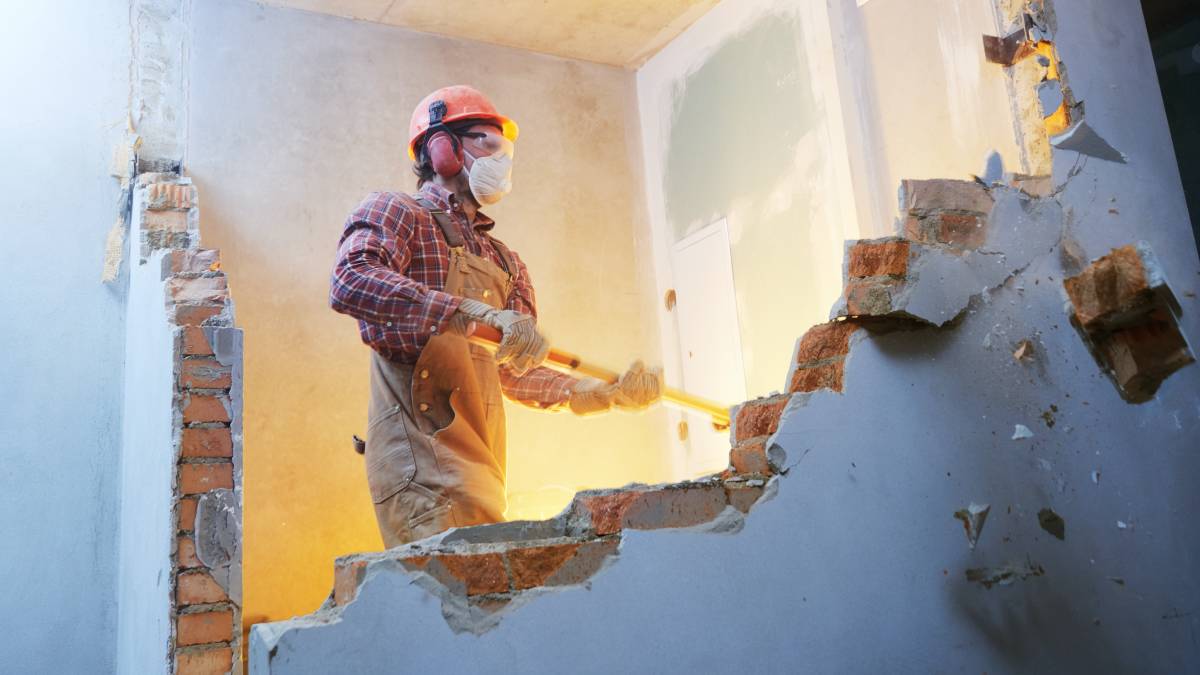
How much does demolition cost?
Read more
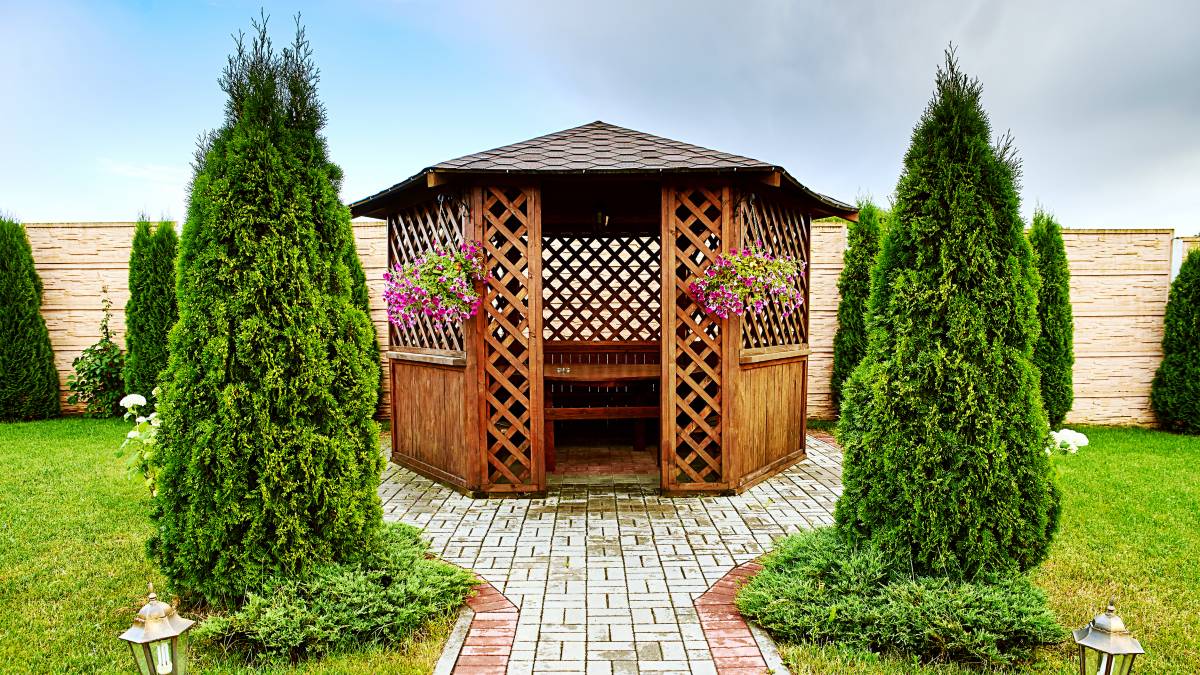
How much does an outdoor gazebo cost?
Read more
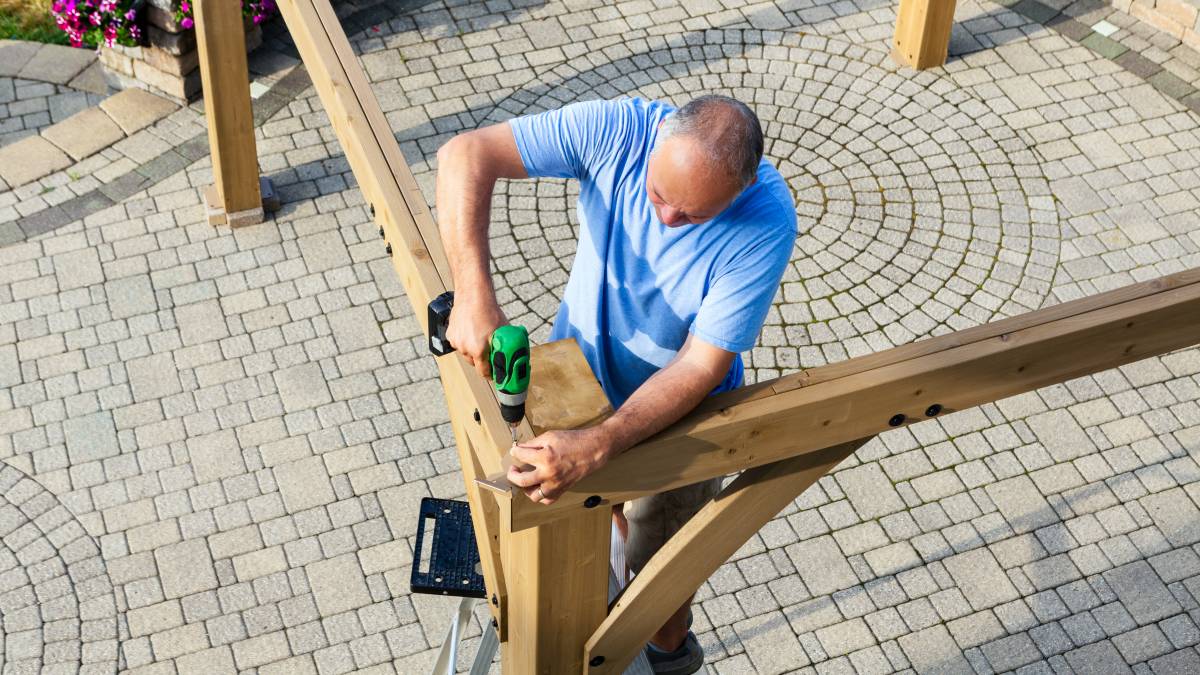
How much does a pergola cost?
Read more
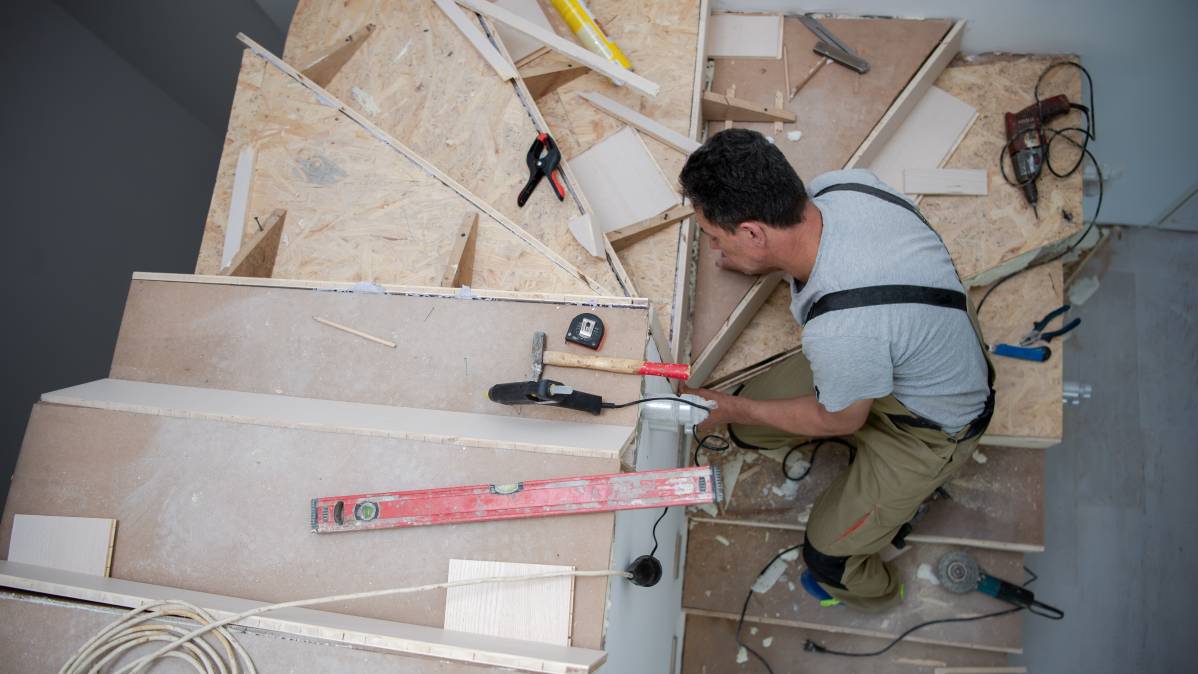
How much does a new staircase cost?
Read more
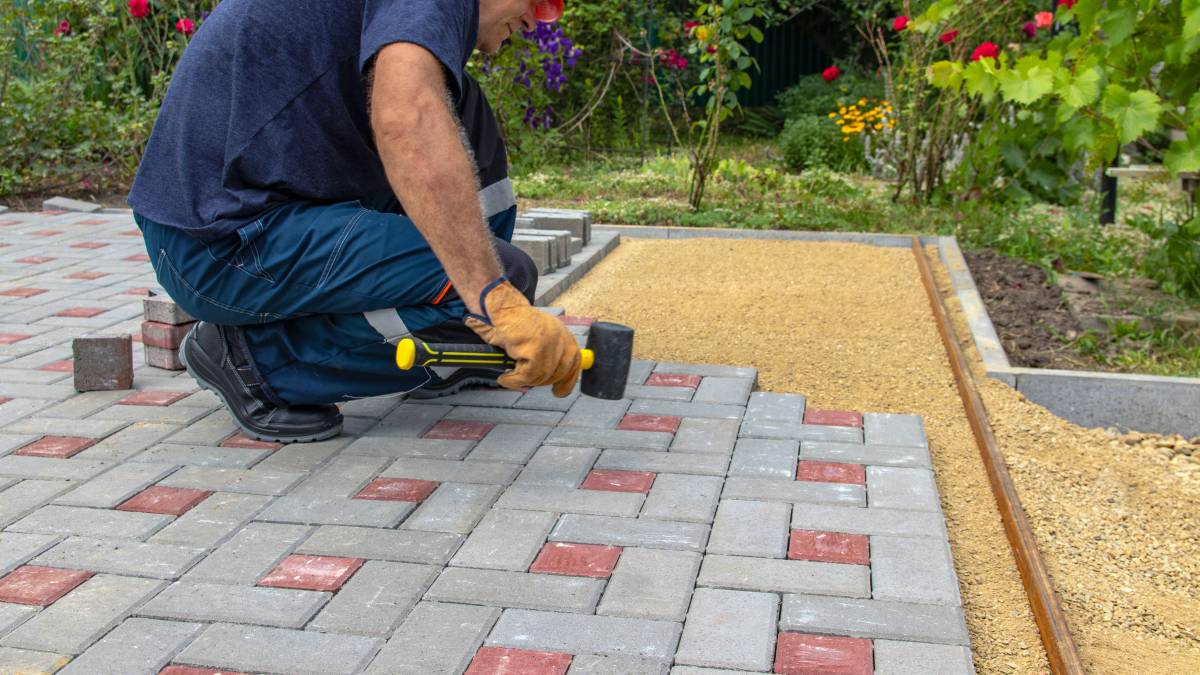
How much do patios cost?
Read more
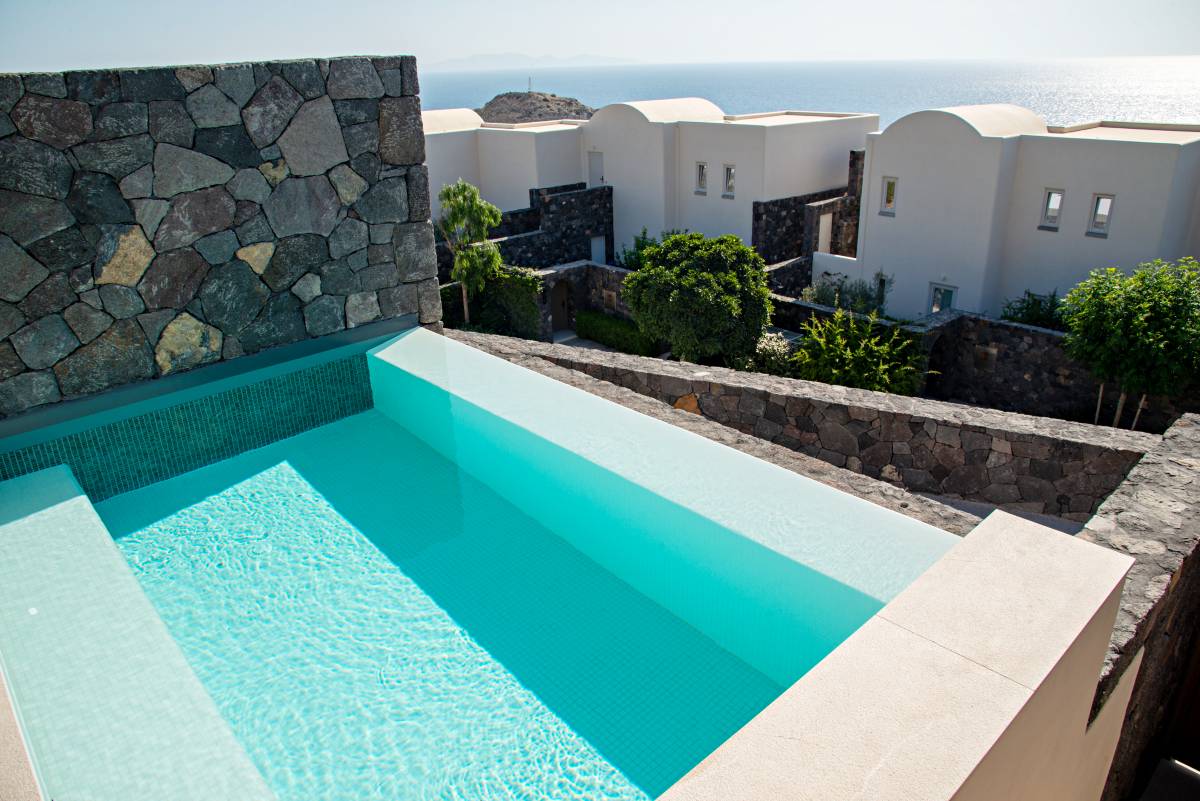
How much does a plunge pool cost?
Read more
